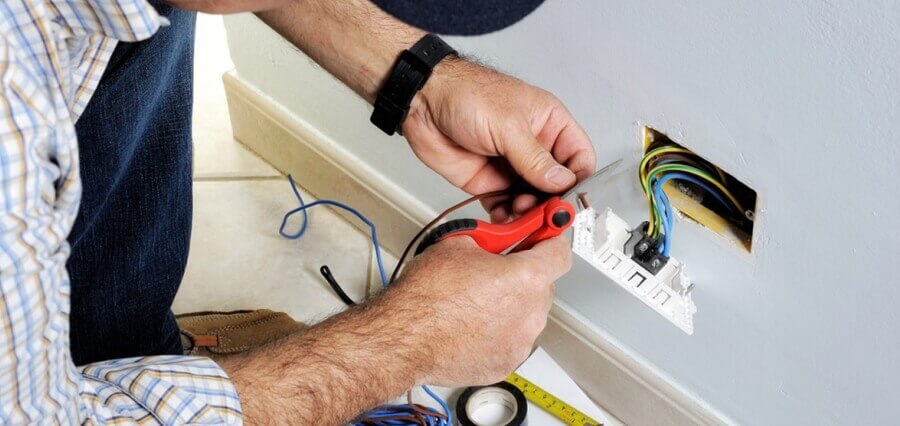[ad_1]
Coming up with fair and accurate quotations as an electrician isn’t always easy; You want to be seen as competitive and affordable, but you also need to ensure your own costs are covered. Not to mention generating enough profit for the work to be worth carrying out in the first place.
If you recently started working as a contractor (or simply struggle where quotations are concerned), here is a brief overview of the basics you need to know:
- Always Cover the Fundamentals First
The first thing you need to do is establish how much you need to earn to cover the project’s costs and pay your own bills, not just those associated with the product itself, but your living costs and lifestyle.
Electricians and contractors, in general, have a whole host of costs to factor in when coming up with quotations. Just a few examples of which include tools and equipment, buying and running vehicles, fuel costs, insurance, mortgage payments, council tax bills, everyday living costs and so on.
A good way to go about things is to work out approximately how much you spend per year to both works and live and then divide this by 12. This will give you a good idea as to what you need to be earning monthly to get by. If preferred, you could divide the total figure by 52 (or 365) to see how much you need to earn weekly (or daily) to cover your requirements.
- Don’t Forget to Add Tax
A common mistake made by electricians and contractors is failing to add the tax to their standard rates. Over time, this could amount to a significant loss when the taxman comes calling.
Taxation and National Insurance as a contractor can be quite complex, typically calling for the involvement of an experienced accountant. Remember that whatever you pay a good accountant to handle your books, you stand to save long-term in time, efforts, stress and money alike.
- Work Out the Best Way to Quote
The best way to quote as a contractor or electrician is largely a judgment call. It depends entirely on the nature and extent of the work you are conducting, combined with your own personal preferences.
However, there are three main approaches to quoting on electrical work, which is all equally viable:
- Job Rate – With job rate quotations, you calculate all costs associated with a job and offer a fixed quotation for the entire project. This is generally the most popular quoting method among contractors and is also the preferred choice for customers.
- Hourly Rate – For smaller jobs that are difficult to provide accurate job rate quotations for, hourly rate quotations may be provided. As the name suggests, this is where you quote a fixed price for every hour of work performed and offer a rough estimate of the amount of time the project will take to complete.
- Daily Rate – This works in a similar way to hourly rate quotations but is suitable for larger jobs that may take several days (or even weeks) to complete. Your daily rate is fixed, and you provide an indication of how many days will be needed to get the work done.
Where all three options are equally viable, it is often worth asking the client which pricing structure they would prefer.
- Maintain Detailed Records
Keeping comprehensive records of your income and expenses is essential for tax purposes. But it can also play a key role in helping you perfect your pricing structure long-term.
Over time, you will build a detailed picture of the kinds of jobs that are making you the most money and those you are perhaps not charging enough for. You will also be able to work out which of the quotation options above works best for you in terms of maximising your profits while still remaining competitive.
- Invest in a Specialist Software Suite
One of the quickest and easiest ways to accurately markup documents and produce reliable quotations is to use a specialist software suite. ZapQuote, for example, was designed specifically to accelerate the process of quoting on projects for electricians and other contractors.
An alternative to working with pens, pencils, rulers and calculators, ZapQuote reduces the time it takes to mark up documents by more than 80%. All while eliminating the risk of human error and making it much easier to perform edits and amendments.
The right software suite can save contractors time and money while ensuring faster and fairer quotations for customers.
- Always Explain Your Quotations Carefully
The key to establishing trust with clients when issuing quotations is to talk them through the details. When presented with quotations, many clients may have no idea how the calculations were performed. If the project’s total cost is not as expected, they may have questions or concerns.
Rather than waiting for them to question your quotations, it is far better, to be frank with them from the start. Meet with them in person if possible, or at least arrange a telephone (or Zoom) conversation. Talk about the costs involved in the project, let them know how you performed your calculations and ensure they know they are getting good value for money.
[ad_2]
Image and article originally from www.insightssuccess.com. Read the original article here.

